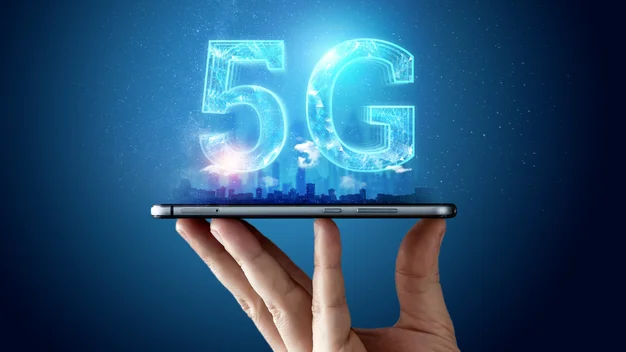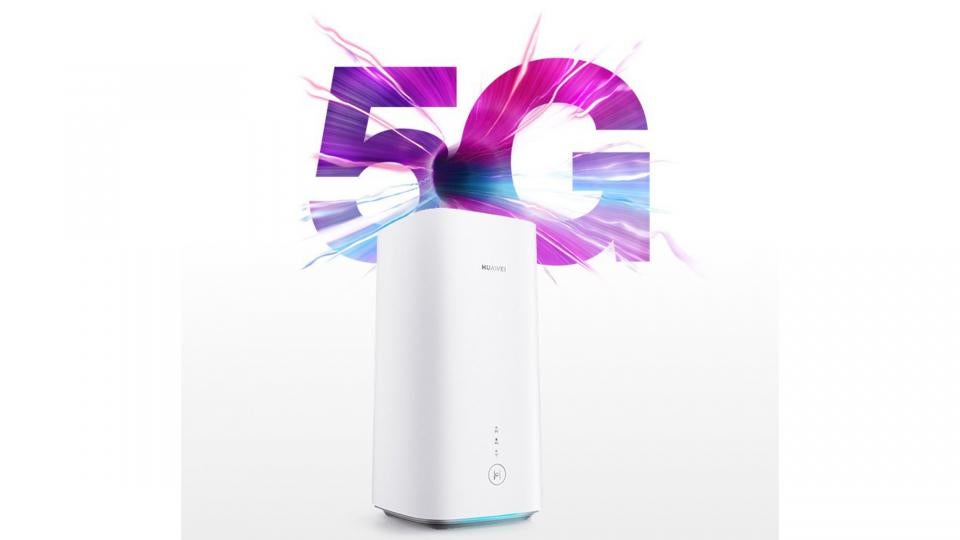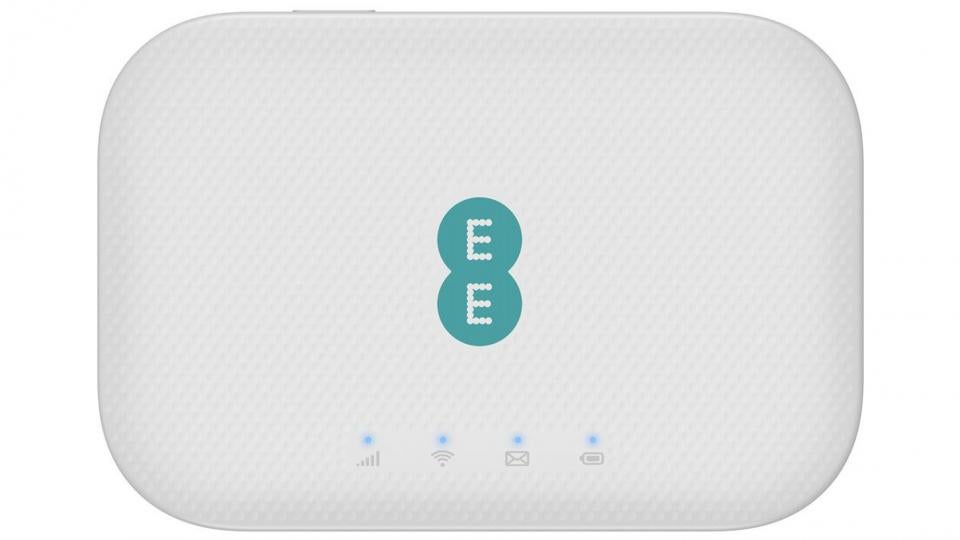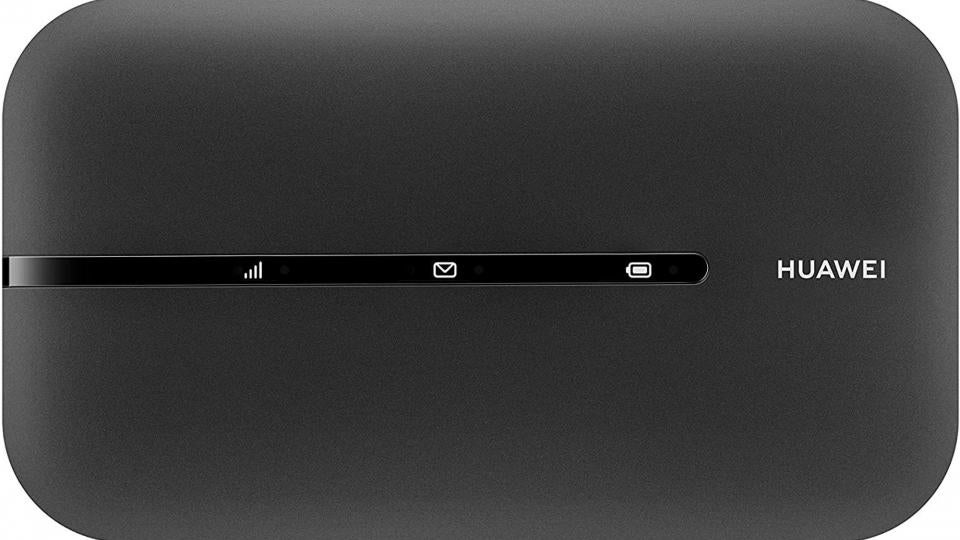Best mobile broadband 2023: Get speedy 4G or 5G internet at home or on the move

Looking for a real alternative to your landline connection or Wi-Fi everywhere you go? We’ve got the mobile broadband deals for you
Once a niche service you might use on holidays or as a backup while moving home, mobile broadband has now hit the mainstream. On the one hand, a new generation of mobile 4G and 5G routers mean you can share one connection across a whole bunch of devices, which is perfect when you’re travelling, living somewhere where a fixed line isn’t an option, or moving into temporary digs. On the other hand, 4G and 5G connections are now a viable alternative to a traditional ADSL or fibre connection. In some cases, the best mobile broadband connections might even be faster than anything BT or its rivals can offer at your property. That’s only going to happen more often as 5G services roll out further and the technology matures.
Best mobile broadband: At a glance
- Best unlimited 4G/5G broadband: Three
- Best premium 5G broadband option: EE 5G Hub
- Solid 5G mobile broadband: Vodafone GigaCube
- Best 4G broadband on the move: EE 4GEE
How to choose the best mobile broadband service for you
Until fairly recently, mobile broadband meant buying a pocket-sized router that worked with a 4G SIM to create a mobile wireless hotspot, which could be used to hook up your laptops, tablets and handheld games consoles to the internet while you were away from home.
Increasingly, though, we’re seeing fully featured designs that do everything you’d expect of a conventional ADSL or fibre router – only using a mobile connection, rather than a fixed line. So far, the limited speeds of 4G services have put such devices in a bit of a niche, but the advent of 5G changes that. When you can get up to 500Mbits/sec just by slotting in a SIM card, why wait for a supplier to bring a full fibre connection to your home?
These new home services tend to be more expensive than the old-school mobile broadband options, although they often come with a higher monthly data cap – or even unlimited usage. We’re also seeing mobile routers that support the more recent 802.11ax (or Wi-Fi 6) standard, so you’re not getting a second-rate experience in any way. Yet some of these mobile routers will still run from battery power, meaning you can take your internet with you if you go on holiday or move between two properties. Just bear in mind that while you might get 4G or even 5G speeds in one place, it doesn’t mean you’ll find them everywhere you go.
The biggest issue here is coverage. You can now find a decent 4G signal across most of the UK, but the fastest 4G+ or LTE-A services, with speeds of over 40Mbits/sec, still tend to be available in only larger towns and cities. As such, check the coverage and compare predicted speeds for your location before you sign up.
With 5G, coverage is improving, but it remains patchy. EE has the largest 5G network, now in reach of more than 60% of the UK population and stretching across over 1,000 UK locations. That doesn’t only include major towns and cities, but 500 rural and semi-rural areas. The other major networks are also catching up, with Three also claiming 60% coverage of the UK population across 588 locations, and Vodafone increasing the speed of its rollout through new 5G Ultra services. With the proposed merger of Three and Vodafone in the UK, the process should accelerate even further.
Meanwhile, O2’s 5G network already covers 750 towns and cities, and is on track to cover 50% of the UK population during 2023. Just bear in mind that not everyone within one of those areas will be able to get a solid 5G signal, and that getting a signal on your phone outdoors doesn’t necessarily mean you’ll get a consistent, high-speed 5G signal inside your home.
What else should I look out for?
Typically, 4G and 5G mobile services have a data allowance or usage cap, which may be somewhere between 50GB and 300GB. That will be fine for work, browsing and music streaming, but if you spend a lot of time watching streaming services or downloading PC and console games, then you need to look for an unlimited package. These are now more widely available than they were even a year ago, although they do come with a price premium and, in some cases, a longer contract.
Finally, take a good look at the router you’re getting with your package. The 4G and 5G home routers now have more features than they used to, with some including two or more Gigabit Ethernet ports and 802.11ax Wi-Fi. However, 4G services might come with a less well-equipped router, while routers designed primarily for mobile use might focus more on the compact size and battery life than the connectivity options.
How we test mobile broadband
We base our mobile broadband reviews on research conducted specifically for our own annual Mobile Network Awards, and on customer service, coverage and performance research from Ofcom and RootMetrics. Our Mobile Network Awards survey asks nearly 4,400 UK readers about their satisfaction levels with their current provider, and how well their 4G or 5G connection holds up while watching video, browsing the internet and streaming. We also ask for more detail on their experience of 5G services, to discover any benefits or issues that readers are experiencing.
Meanwhile, Ofcom’s Comparing Customer Service: Mobile, Landline and Home Broadband report provides a detailed indication of customer satisfaction with service, value and support for each UK network, including data on how many complaints are made and how they’re handled.
Finally, RootMetrics runs in-depth performance tests across the length and breadth of the UK to capture figures for performance and coverage – including more specific 4G and 5G performance tests in 16 of the UK’s largest towns and cities. The results are updated twice a year.
We take all these results into account before coming to a conclusion about the best services in terms of performance, reliability and overall value for money.
READ NEXT: Want a fixed line? Here’s our list of the best broadband providers
The best mobile broadband you can buy in 2023
1. Three Home Broadband: Best unlimited 4G/5G broadband
Price when reviewed: Free for the first three months (then £20/mth) | View deals at Three
If you’re lucky enough to live in an area within Three’s 5G coverage, its Home Broadband package is difficult to beat. For £20/mth (on a 24-month contract), you get unlimited 5G broadband at the fastest speed available, with performance that can match and even beat many fibre options. Three promises average download speeds of 150Mbits/sec, and it isn’t unknown for data speeds to peak above 400Mbits/sec. Some customers still complain of slow or inconsistent connections, although increased and improved coverage seems to be working in Three’s favour. The bundled 5G Hub supports download speeds of up to 2.33Gbits/sec and has two Gigabit Ethernet ports and 802.11ax Wi-Fi with 4×4 MIMO, so you have everything you need to handle higher speeds, should they come through.
Both coverage and performance have improved over the past year, according to research firm RootMetrics. Three can now offer 5G services to more than 50% of the population in the UK’s major cities, while it now has the fastest UK median download speed for 5G services, at 202.2Mbits/sec. Coverage is now higher than in 2022 in 15 out of 16 cities where RootMetrics tests, while download speeds are faster in nine of them. In fact, Three posted 5G median download speeds of over 200Mbits/sec in nine of those cities, and over 100Mbits/sec in the remainder. More investments in the 5G spectrum should see a greater number of areas seeing this kind of performance, as should the potential Vodafone merger.
Those outside of 5G areas aren’t forgotten. Three offers an unlimited 4G+ Home Broadband plan: you can expect speeds of up to 600Mbits/sec, although most connections will be in the 50 to 100Mbits/sec range. Deals come with unlimited data at £14/mth on a 24-month contract with no upfront charge. Last year, Three moved to a new 4G+ router with slightly faster wireless speeds than the old model, although it now has just two Gigabit Ethernet ports and Wi-Fi remains Wi-Fi 5 rather than the newer Wi-Fi 6. Three ranks second for median 4G and 5G download speeds across the UK, so even the 4G service is competitive if you’re stuck without a fast fixed landline.
Three could still make improvements to delivery of customer service and satisfaction; both in our Mobile Network Awards survey and Ofcom’s latest research it scored below the average on customer satisfaction. Ofcom’s research also noted that Three had the highest percentage of customers with a reason to complain – although, bear in mind that these figures include smartphone users as well as mobile broadband customers. Given the low pricing and high speeds, Three should be right at the top of your shortlist if you want a 5G wireless alternative to fibre.
2. EE 5G WiFi: Best premium 5G broadband option
Price when reviewed: From £21 to £58/mth | View deals at EE
If you’re prepared to pay more for your mobile broadband, EE has some compelling 5G deals. They’re based around the brand’s 5G Wi-Fi router, with 802.11ax/Wi-Fi 6 connectivity and support for up to 64 devices in a 30m range. With that spec, the only serious limitation is the single Gigabit Ethernet port.
The cheapest £21 to £24/mth plans are really only suitable for occasional light use, with just 5GB and 25GB of data. What’s more, both plans come with a whopping £100 upfront charge. Beyond this, you’re looking at 125GB or Unlimited data for £45 to £58/mth. Just be aware that only the most expensive £58/mth plans come without a 100Mbits/sec speed cap – so, if you want the fastest service, you’ll have to pay for it.
On the plus side, EE has a good chance of helping you reach those maximum speeds. In the latest round of RootMetrics testing, EE registered 5G median download speeds of over 100Mbits/sec in 15 out of 16 UK cities, and coverage had improved in 14 of those cities since 2022, reaching over 50%. And while EE’s UK-side 5G median download speed of 144.6Mbits/sec puts it behind Three, its slowest 5G download speeds aren’t as slow as those of its competitors, while its fastest 5G download speeds (436.9Mbits/sec) are impressive. Like Three, EE has also invested in more 5G spectrum, so expect more improvements in the future.
It’s a premium option, and in some areas Three, O2 or Vodafone will be faster; but EE delivers great 5G broadband in more locations than any other network in the UK, and it scored well for customer service and satisfaction both in our Mobile Network Awards and Ofcom’s 2023 report. If you’re in the market for 5G broadband, it’s well worth checking out.
3. Vodafone GigaCube: Solid 5G mobile broadband
Price when reviewed: From £40 to £60/mth (plus up to £175 upfront) | View deals at Vodafone
Vodafone’s 5G GigaCube router comes with a choice of two plans, available on either a rolling monthly contract or a 24-month plan. For £40/mth, you’ll get the 5G GigaCube router with 200GB of data, while unlimited data takes the cost up to £60/mth. Otherwise, the major difference is the upfront costs, which range from zero on the 24-month unlimited plan to £175 on both 30-day plans.
The TCL-produced GigaCube router is the star of the show, enabling up to 64 devices to connect simultaneously, with support for Wi-Fi 6 and 4×4 MIMO to ensure you can get a good connection around the home. The GigaCube also packs in a single Gigabit Ethernet port alongside a faster 2.5Gbit LAN/WAN port. And if you don’t have 5G in your area yet, you can get a 4G GigaCube router with a 4G SIM, with the monthly rates running from 200GB for £40/mth to 300GB for £50/mth.
Vodafone has slipped behind Three and EE when it comes to 5G performance, but it’s still very competitive in many locations across the UK. RootMetrics’ latest round of testing had Vodafone posting median 5G download speeds of over 100Mbits/sec in 15 out of 16 UK cities, up from 12 in 2022, with a UK-wide median 5G download speed of 131.5Mbits/sec. Coverage is also getting better, with Vodafone claiming that its new 5G Ultra services should put 1 million additional UK customers in reach of its 5G network. This should only improve further in the future, particularly if Vodafone’s proposed merger with Three goes through. As things are with price, performance and coverage, we’d recommend EE or Three over Vodafone. But keep an eye on prices and availability, because Vodafone’s 5G services are definitely on the up.
4. EE 4G WiFi: Best 4G broadband on the move
Price when reviewed: From £14 to £50/mth | View deals at EE
There are at least two good reasons to pick EE’s 4GEE bundles if you’re after mobile broadband on the go. For one, RootMetrics still rates EE as the number one UK network for 4G and 5G performance, with a UK-wide median download speed of 65.1Mbits/sec far in advance of the nearest competitor, Three, at 34.7Mbits/sec. Second, coverage is excellent, and you shouldn’t find it hard to get a decent signal even in rural or coastal areas, although there will always be some remote spots or awkward places where it slips.
EE’s 4G WiFi Mini router is also pretty useful, with 802.11ac Wi-Fi and a 2,150mAh battery that should last up to 12 days. It measures less than 10cm across and weighs only 85g. EE has also adjusted its range of plans since our last review, starting with a £14/mth plan with 5GB of data, then moving up through the £17/mth 25GB and £40/mth 125GB plans, to the unlimited data option at £50/mth. There are no upfront costs on any of these plans.
EE also offers a Smart 4G Hub home router with its own £30/mth 100GB and £50/mth unlimited plans. These offer a solid alternative to standard fibre broadband packages if you have a good 4G signal, although the £150 upfront cost on the unlimited deal might be difficult to swallow. There’s stiffer competition here from Three, but EE’s faster 4G connection speeds might help make up for the higher pricing. If you’re looking for speedy broadband, both at home and on the move, or you’re a nomadic or highly mobile worker, then this could be just what you’re looking for, giving you decent connection speeds wherever you need them – even if you’ll have to do without 5G.
5. Three 4G MiFi: The best for unlimited data away from home
Price when reviewed: From £12/mth to £27/mth | View deals at Three
While Three is heavily pushing 5G as a home broadband option, it hasn’t forgotten those wanting mobile broadband for holidays, business trips or travel. Like O2 and Vodafone, it offers a range of 4G services using a Huawei E5783B micro-router. This combines 4G connectivity with a six-hour battery life and dual-band 802.11ac Wi-Fi. It supports up to 10 devices at once.
The real reason to get excited is the unlimited option for £11/mth for the first six months of a two-year contract, then £22/mth thereafter. There’s no upfront cost on the two-year contract, but you’ll have to pay £19 on a 12-month plan, with the price rising to £26/mth. With the unlimited deal, you can stream and download as much as you like, and basically consume broadband much as you would at home, subject to fair-use conditions. And if you don’t need that kind of data, then 10GB and 40GB plans are also available, starting at £12/mth.
While Three’s 4G speeds aren’t as impressive as its 5G speeds, they’re still nothing to sniff at. In RootMetrics’ latest tests, Three scored a UK-wide median download speed of 34.7Mbits/sec, coming in behind only EE at 65.1Mbits/sec. It’s a good option both in rural and semi-rural areas, and in larger towns and cities, so you should get a decent connection wherever you roam. EE’s 4G WiFi will give you higher speeds in more locations, not to mention better scores for customer service and satisfaction – one area where we still find Three struggling. Still, if you’re looking to get plenty of data for less, then Three has the best deals in 4G mobile broadband.
